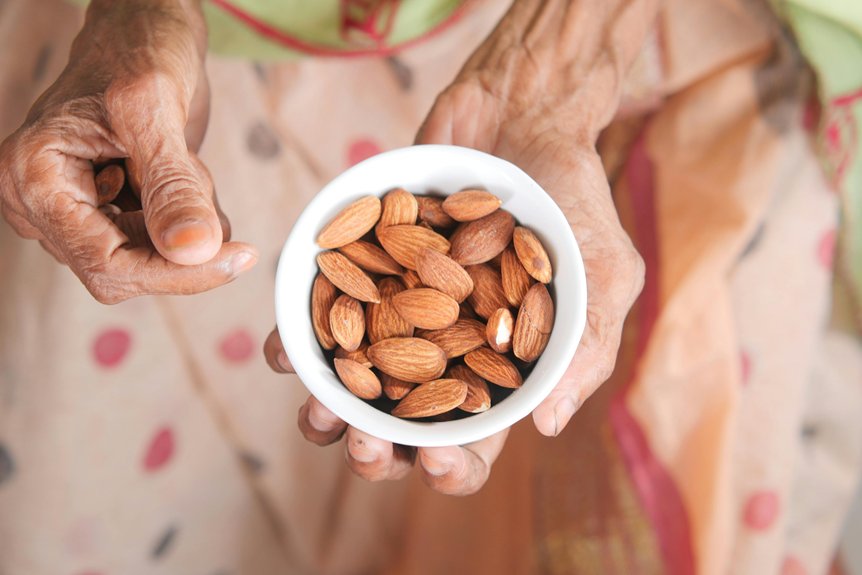
When you think about gut health, you might not immediately connect it to American Indigenous foods. Yet, these traditional staples offer a wealth of nutrients that can significantly enhance your digestive wellness. From the rich fiber in wild rice to the protein-packed beans, there’s much to explore. What makes these foods not just nutritious but also sustainable? Understanding their role in our diets reveals a deeper connection to both health and heritage.
The Nutritional Power of Wild Rice
While you might think of rice as just a simple side dish, wild rice packs a powerful nutritional punch that can elevate your meals. This nutrient-dense whole grain is high in protein, fiber, and essential minerals, making it a fantastic choice for supporting gut health.
Wild rice is rich in antioxidants, including phenolic compounds, which help reduce inflammation and promote overall digestive wellness. Unlike white rice, it has a lower glycemic index, aiding in blood sugar stabilization and fostering a healthy gut microbiome.
Additionally, wild rice is naturally gluten-free, making it an inclusive option for those with gluten sensitivities or celiac disease. Incorporating wild rice into your diet not only enhances flavors but also honors traditional Indigenous practices and their nutritional wisdom.
Beans: A Staple for Gut Health
Wild rice isn’t the only Indigenous food that supports gut health; beans also play a vital role in nourishing our digestive systems. Rich in dietary fiber, beans act as prebiotics, feeding the beneficial bacteria in your gut and promoting healthy digestion.
Traditional Indigenous diets often featured varieties like black, pinto, and kidney beans, which bolstered overall well-being through improved gut health. Plus, beans provide a source of plant-based protein and essential nutrients like folate, iron, and magnesium, enhancing gut function and overall health.
Their high fiber content can help prevent constipation and ensure regular bowel movements, lowering the risk of digestive disorders. Incorporating beans into your diet not only supports your gut health but aligns with sustainable agricultural practices, benefiting both you and the environment. Additionally, Bioma probiotics can further enhance digestive health by promoting a balanced microbiome.
Exploring Native Grains and Their Benefits
Native grains such as quinoa, amaranth, and teff offer a wealth of nutritional benefits that can enhance your gut health and overall well-being. These grains are rich in fiber, protein, and essential nutrients, making them ideal for supporting healthy digestion.
Quinoa stands out with its complete amino acid profile and gluten-free nature, which is perfect for those with gluten sensitivities. Amaranth, high in antioxidants, helps reduce inflammation and promotes digestive comfort.
Integrating these native grains into your diet not only boosts your health but also aligns with regenerative agricultural practices, benefiting the environment. By choosing these grains, you’re embracing traditional Indigenous diets that have long supported gut health and balanced microbiota.
The Role of Fiber in Digestive Wellness
Incorporating native grains into your diet lays a strong foundation for digestive wellness, but it’s fiber that truly supports your gut health.
Fiber promotes regular bowel movements, preventing constipation and maintaining a healthy gut. Indigenous foods like beans, corn, and various fruits and vegetables are rich in both soluble and insoluble fiber, enhancing nutrient absorption and overall gut health.
A high-fiber diet can boost the diversity of your gut microbiota, which is linked to better immune function and reduced inflammation.
Plus, research shows that fiber-rich diets may lower the risk of gastrointestinal disorders, such as diverticulitis and IBS.
Aim for the recommended daily intake of 25-30 grams, and make those fiber-rich indigenous foods a staple in your meals for optimal digestive health.
Locally Sourced Ingredients and Their Impact
As you explore the world of American Indigenous foods, you’ll find that locally sourced ingredients play a vital role in enhancing your overall health.
Staples like corn, beans, and squash are packed with fiber and nutrients, promoting a healthy gut microbiome. Wild rice and indigenous herbs offer unique prebiotics that encourage the growth of beneficial gut bacteria.
Embracing foraging and seasonal ingredients fosters a diverse diet, essential for gut health and preventing digestive issues. Indigenous agricultural practices, such as crop rotation and companion planting, result in nutrient-rich foods that support your well-being.
Traditional methods like fermentation create probiotic-rich foods, helping balance gut flora and improve digestion. Incorporating these ingredients into your diet can lead to lasting health benefits.
Regenerative Agriculture and Its Benefits
Regenerative agriculture offers a powerful way to enhance our food systems while promoting gut health. By focusing on restoring soil health through practices like crop rotation and reduced tillage, you’ll enjoy nutrient-dense foods that support digestive wellness.
Studies show that this approach boosts biodiversity in soil ecosystems, fostering a robust microbiome essential for your gut health. Plus, regenerative farming sequesters carbon, helping mitigate climate change while creating sustainable food systems.
Incorporating traditional Indigenous techniques, it emphasizes native plants and biodiversity, aligning with nutrient-rich diets. As soil health improves, you’ll notice higher yields of essential vitamins and minerals, ultimately benefiting your overall gut function and health.
Embracing regenerative agriculture is a smart choice for both you and the planet.
Incorporating Indigenous Foods Into Modern Diets
While modern diets often emphasize convenience, integrating Indigenous foods can enrich your meals and boost your health. Nutrient-dense options like wild rice, acorns, and various beans are high in fiber and promote gut health.
You can enhance digestion by incorporating traditional fermentation methods used for corn and fish, fostering beneficial gut bacteria. Seasonal foraging for indigenous plants like dandelion greens and nettles provides essential vitamins while supporting a diverse microbiome.
Additionally, using traditional cooking techniques such as steaming and slow cooking helps preserve nutritional quality and aids digestion. Reviving these practices not only benefits your health but also contributes to sustainable agriculture and biodiversity, creating a positive impact on both your body and the ecosystem.
Conclusion
Incorporating American Indigenous foods into your diet not only honors traditional wisdom but also enhances your gut health. Staples like wild rice, beans, and native grains provide essential nutrients and fiber that support digestive wellness. By choosing locally sourced ingredients and embracing regenerative agriculture, you can contribute to a healthier planet while reaping the benefits of these powerful foods. So, dive into these culinary treasures and experience the profound impact they can have on your overall well-being.





